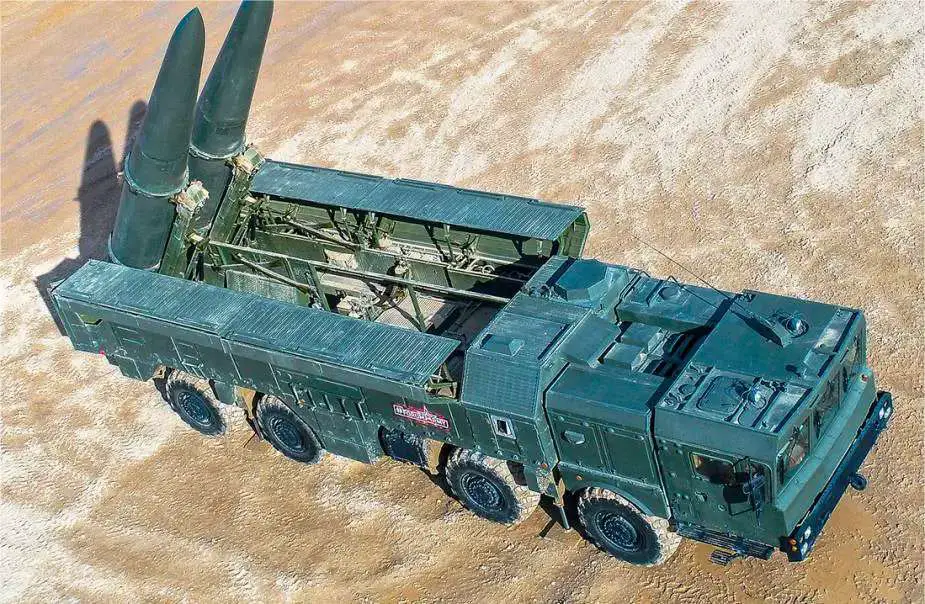NATO General Alexander Sollfrank urges readiness for potential Russian missile strikes in Europe
The concerns about various forms of Russian military threats on Europe and the need for NATO to remain vigilant and prepared for such threats are significant in today's geopolitical landscape. Lieutenant General Alexander Sollfrank, the commander of NATO's military logistics center in Germany, recently emphasized the importance of addressing these concerns, as Nate Ostiller and The Kyiv Independent news desk report.
Follow Army Recognition on Google News at this link

Iskander-M ballistic missiles could be launched from the Kaliningrad enclave toward the Baltic States and Poland, for instance (Picture source: Russian social network)
Since the onset of Russia's full-scale invasion of Ukraine, NATO member countries have indeed taken steps to bolster their military capabilities and readiness. However, the possibility of Russian missile strikes in Europe during a full-scale conflict remains a pressing issue.
Numerous NATO commanders and alliance leaders have issued stark warnings in recent months about the potential consequences of a full-scale war in Europe. Lieutenant Admiral Rob Bauer, the chair of the NATO Military Committee, has even suggested that NATO nations should prepare for such a conflict within the next two decades.
Sollfrank and other NATO generals are concerned that a direct military confrontation with Russia could occur within the next three years. Germany, being a central logistical hub for NATO in central Europe, could be a prime target if such a conflict were to unfold.
One of the challenges highlighted by Sollfrank is the current distribution of NATO forces across the continent, which may require difficult resource allocation decisions during a crisis. Additionally, there are compatibility issues with NATO equipment and personnel that could impede an effective response. Therefore, streamlining processes and ensuring readiness are crucial steps to address these potential threats effectively.
So, the concerns regarding Russian military threats on Europe, including the possibility of missile strikes, are real and require NATO's continuous vigilance and proactive defense strategy to safeguard the region's security. The need for preparedness, resource allocation, and coordination among NATO member countries remains paramount in the face of these challenges.
Defense News January 2024
- Hits: 2367
















